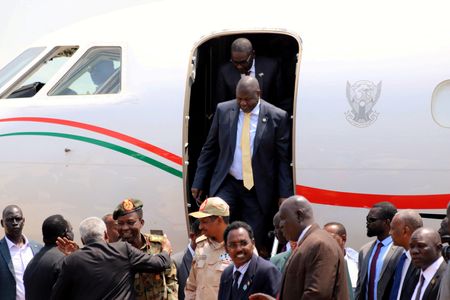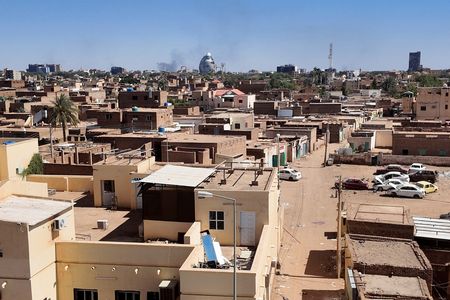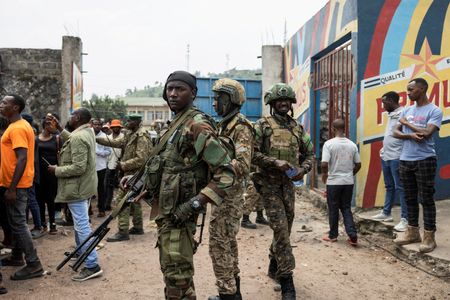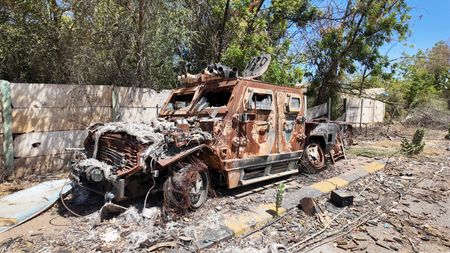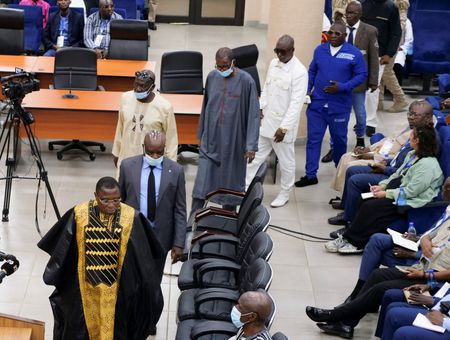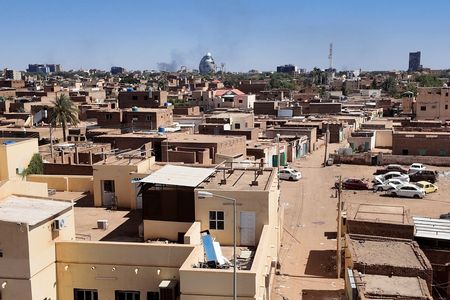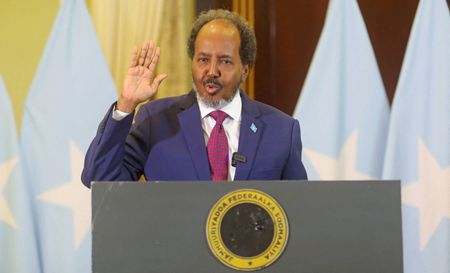NAIROBI (Reuters) -South Sudan’s First Vice President Riek Machar is under arrest and will be investigated on charges of trying to stir up rebellion, the government said on Friday, the first confirmation of a detention that world powers fear could reignite civil war.
Reports that Machar – a longtime rival of President Salva Kiir – was arrested on Wednesday prompted international calls for restraint. Neighbouring Kenya sent its former prime minister, Raila Odinga, to defuse tensions.
Machar’s party said this week that his detention had effectively voided a 2018 peace deal that ended a five-year civil war between Kiir’s Dinka forces and Nuer fighters loyal to Machar.
Government spokesperson and information minister Michael Makuei said in a statement that “Machar and his anti-peace colleagues of the SPLM/A-IO (Machar’s party), who are under arrest will be investigated and brought to book accordingly.”
He accused Machar of contacting his supporters and “agitating them to rebel against the Government with the aim of disrupting peace so that elections are not held and South Sudan goes back to war.”
“The Peace Agreement has not collapsed and shall not under any circumstances,” Makuei said.
There was no immediate response from Machar or his party to the allegations.
Machar’s party has previously denied government accusations that it backs the White Army, an ethnic militia largely comprising Nuer youths, which clashed with the army in the northeastern town of Nasir this month, triggering the latest crisis.
In response to the fighting, Kiir’s forces rounded up several of Machar’s senior allies, including the petroleum minister and the deputy head of the army.
There have been clashes in recent days between forces loyal to the two men outside Juba and elsewhere.
CLASHES, ACCUSATIONS
U.N. Secretary-General Antonio Guterres said on Friday the peace process was in a shambles and asked its leaders to put down the weapons and put all the people of South Sudan first.
“Let’s not mince words: What we are seeing is darkly reminiscent of the 2013 and 2016 civil wars, which killed 400,000 people,” Guterres told reporters in New York, referring to episodes in the conflict.
Kenyan President William Ruto, who chairs the East African Community bloc, said he had spoken to Kiir about Machar’s detention.
Former Kenyan prime minister Odinga said on X he met with Kiir on Friday and was encouraged by the possibility of the conflict being resolved. He later added he flew to Uganda for a meeting with President Yoweri Museveni.
Machar’s party said in a statement the visit by Odinga was a positive diplomatic development.
Western countries, including the United States, Britain and Germany have closed embassies or cut back operations in South Sudan.
Ruto said he had consulted Museveni, who sent troops this month to South Sudan at the government’s request to help secure the capital, and Prime Minister Abiy Ahmed of Ethiopia, which has hosted South Sudan peace talks in the past.
Political analysts say Kiir has been attempting to shore up his position by arresting some of Machar’s most senior allies, inviting in the Ugandan army and naming adviser Benjamin Bol Mel as second vice president.
“The pretence of Riek Machar’s control over the White Army is a useful distraction for Juba’s actual political crisis— collapsing oil revenues and Salva Kiir’s contentious plan to install Bol Mel as his successor,” Justin Lynch, managing director of Conflict Insights Group, said.
(Reporting by Hereward Holland; Additional reporting by Michelle Nichols in New York; Editing by Ammu Kannampilly, Alex Richardson, Timothy Heritage, Ros Russell and Andrew Heavens)

